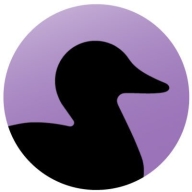

Black Duck SCA and FOSSA are competitors in the software composition analysis domain. Data comparisons indicate that FOSSA has an advantage in terms of overall satisfaction, thanks to its feature set and perceived value, while Black Duck SCA excels in compliance management.
Features: Black Duck SCA offers powerful compliance management, deep license risk analysis, and comprehensive security risk assessment. FOSSA is known for its seamless integrations, real-time vulnerability alerts, and efficient dependency management.
Room for Improvement: Black Duck SCA could enhance its user interface, simplify deployment processes, and improve real-time vulnerability detection. FOSSA could improve its analysis of proprietary code, broaden its vulnerability database beyond NVD, and offer more in-depth guidance on resolving issues.
Ease of Deployment and Customer Service: Black Duck SCA provides a thorough deployment model with reliable support, though it can be time-consuming. FOSSA offers agile deployment and prompt customer service, facilitating a smoother adoption process.
Pricing and ROI: Black Duck SCA requires a larger initial investment but offers a strong return on investment through risk management. FOSSA's competitive pricing and efficient deployment offer an attractive ROI, maximizing its value proposition.
| Product | Market Share (%) |
|---|---|
| Black Duck SCA | 13.5% |
| FOSSA | 3.2% |
| Other | 83.3% |
| Company Size | Count |
|---|---|
| Small Business | 6 |
| Large Enterprise | 16 |
| Company Size | Count |
|---|---|
| Small Business | 5 |
| Midsize Enterprise | 1 |
| Large Enterprise | 8 |
Black Duck is an essential tool for software composition analysis and license compliance. It identifies vulnerabilities effectively and supports security management in DevOps environments, offering integration, performance stability, and community support.
Organizations rely on Black Duck for seamless integration in CI/CD pipelines, thorough scanning of source and binary codes, and management of operational risks associated with open-source and commercial licenses. It plays a crucial role in security risk management and delivers a robust policy management framework. Users value its ease of use and reliable community support while benefiting from its comprehensive dependency visualization capabilities. Despite its strengths, there is room for enhancement in integration with other tools, UI friendliness, and reporting features.
What are Black Duck's key features?
What should users look for in ROI?
Enterprise environments use Black Duck extensively for security, compliance, and risk management, ensuring software meets regulatory standards and mitigates vulnerabilities. Its implementation in specific industries aids in controlled and secure software development processes, underlining its role in maintaining rigorous security standards while delivering dependable performance.
We monitor all Software Composition Analysis (SCA) reviews to prevent fraudulent reviews and keep review quality high. We do not post reviews by company employees or direct competitors. We validate each review for authenticity via cross-reference with LinkedIn, and personal follow-up with the reviewer when necessary.